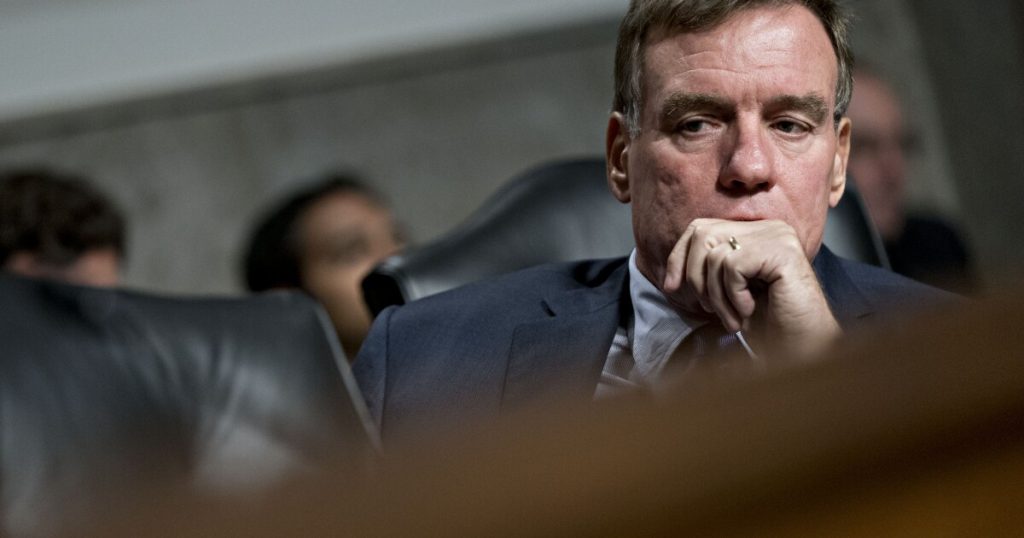Andrew Harrer/Bloomberg
A pair of bipartisan bills introduced during the past week would require the Treasury Department to conduct an annual stress test of the nation’s financial system and the government’s ability to support it during a crisis.
Sens. Mark Warner, D-Va., and Todd Young, R-Ind., introduced a bill on Tuesday titled the “Fiscal Contingency Preparedness Act.” The proposal matches legislation put forth by Reps. Ben Cline, R-Va., and Jared Golden, D-Maine, last week.
Both bills would require the Treasury Department to work with the Office of Management and Budget to compile a yearly analysis of the federal government’s ability to respond to a variety of
Those reports would then be audited by the Government Accountability Office for methodological and analytical accuracy.
A financial crisis, originating in the banking system
In a written statement issued Tuesday, Warner described the stress test proposal as a prudent response to recent domestic and global shocks.
“The past decade has taught us the importance of bracing for the unexpected – whether that be a world-wide pandemic, a devastating weather event, or a cyberattack on major infrastructure,” Warner said. “This legislation will allow the government to take a hard look at our nation’s financial resilience in the face of various crises, disasters, and other extraordinary events, and provide Congress with critical context needed to make important financial and policy decisions.”
Young, in a separate statement, pointed to several significant events that tested the U.S. financial system in the last quarter century alone.
“The United States has faced several threats to the stability of our economy and financial systems in recent years, including the 9-11 attacks, the 2008 financial crisis, and the COVID-19 pandemic,” Young said. “Our bill will require yearly reviews of America’s fiscal strength to ensure policymakers can properly respond to future emergencies and make informed policy decisions.”
These episodes could also be used to set benchmarks for the annual assessment. The bill directs the agencies to use data about historical crises and responses to estimate the cost of similar, future events.
Upon introducing the House version of the bill, Cline said the need for a yearly review has been elevated because of the
“With our debt piling up and interest payments skyrocketing, we cannot afford to be caught flat-footed when the next emergency hits,” Cline said. “Just like households plan ahead for tough times, the federal government must do the same. Americans deserve a clear picture of how much room we actually have to respond to future crises. Congress must face the facts and make responsible decisions now, before an emergency strikes.”
If the bills pass, Treasury and OMB would be required to conduct their first stress test within six months of enactment. Once their report is out, the GAO would have to conduct its audit and release its findings within a year.

